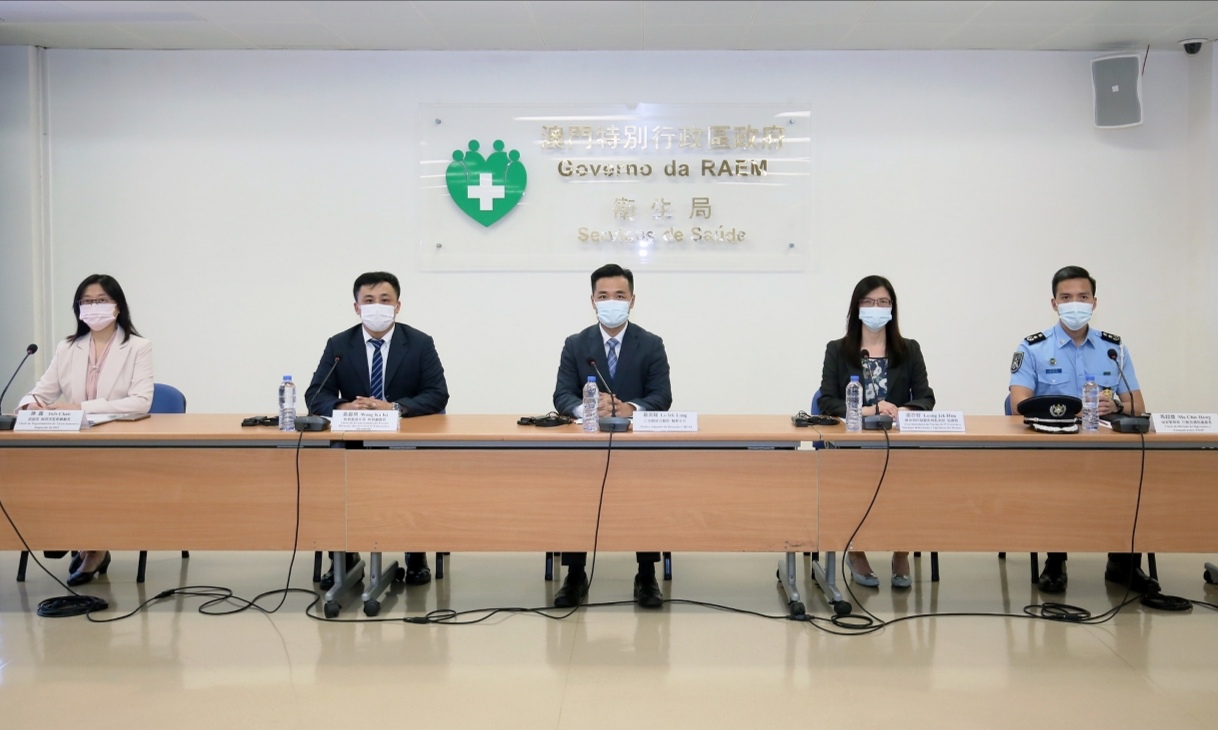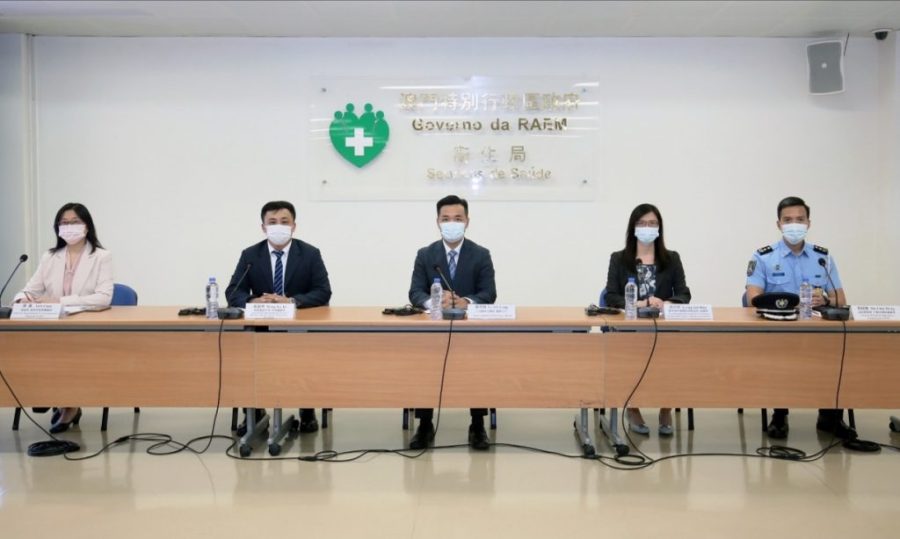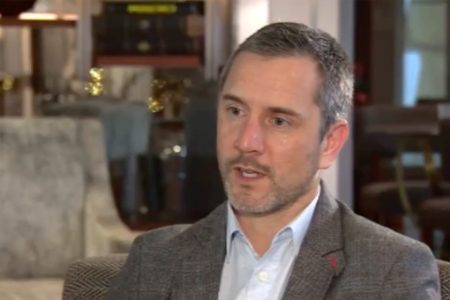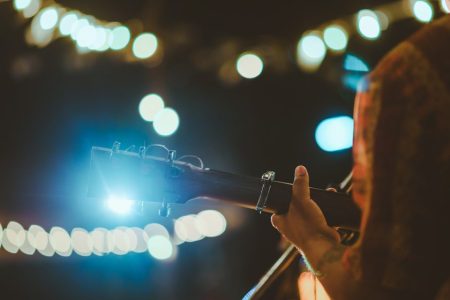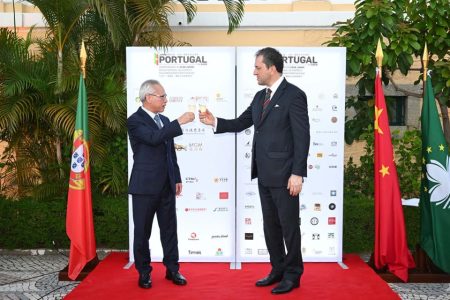Addressing Saturday’s press conference about Macao’s novel coronavirus (COVID-19) situation, the Health Bureau’s (SSM) Control of Communicable Diseases and Surveillance of Diseases Department Coordinator Leong Iek Hou said that the government plans to amend its guidelines as to what circumstances residents should wear a facemask.
Leong pointed out that the National Health Commission (NHC) has constantly formulated and amended its guidelines on wearing facemasks in line with the overall COVID-19 epidemic situation on the mainland, and the authorities in different regions on the mainland such as Beijing, Guangdong and the neighbouring city of Zhuhai, have also constantly amended their respective guidelines on wearing facemasks in line with their own epidemic situations.
Leong said that the Health Bureau (SSM) is constantly evaluating the ongoing development of the COVID-19 epidemic in Macao and plans to amend its guidelines on wearing facemasks accordingly. Leong underlined that her bureau will take Macao’s own situation, its high population density and crowded buses in particular, into consideration when drafting its revised guidelines on wearing facemasks. She said that the local government will announce its new guidelines on wearing facemasks once the draft has been completed.
According to the current guidelines, public transport passengers and drivers must wear facemasks, and anyone entering public administration premises must also wear them. The government also recommends that everyone should wear a facemask when out and about – both indoors and outdoors.
72 million ‘government masks’ sold
Meanwhile, Alvis Lo Iek Long, a clinical director of the public Conde S. Januário Hospital Centre, said during Saturday’s press conference that 72 million facemasks have so far been sold under the government’s facemask purchase scheme since its launch.
The facemasks sold under the scheme are colloquially known as “government masks”.
Lo reaffirmed that the government’s facemask purchase scheme is “merely a provisional measure” to ensure that residents can buy facemasks. “It will not permanently exist,” Lo said, adding that the government would “dynamically” evaluate whether its facemask purchase scheme should continue based on a number of factors, such as the development of the COVID-19 epidemic in Macao and elsewhere, the supply of facemasks in the private market, and “the degree of difficulty with which the government is able to purchase [import] facemasks”.
Lo pledged that the government will make an announcement in due course about its decision on whether it will continue with its facemask purchase scheme.
Under the facemask purchase scheme, which was launched by the government on January 23, each local resident and non-resident worker is entitled to buy 10 facemasks at the fixed price of MOP 8 every 10 days at designated outlets upon presentation of their original Macao ID card or work permit (informally known as “blue card”). In each round, which lasts 10 days, parents or legal guardians are entitled to buy 10 facemasks for each child aged between five and eight, and five facemasks for each kid aged between three and four. The scheme, of which the 13th round started on Friday, has been widely praised by residents.
Observers have noted that close to 100 per cent of people in Macao wear facemasks when out and about. Apart from the “government masks”, facemasks are also available at commercial prices in the private market.
Lo also said that if residents find the quality of facemasks they have bought from designated outlets under the government’s facemask purchase scheme poor, they could immediately tell the staff so that they can be changed, adding that they also could call the hotline of the government’s Novel Coronavirus Response and Coordination Centre to complain, in which case the centre would “certainly” investigate and follow up on the matter.
Lo also said that residents can file a complaint to the government’s Consumer Council (CC) if they find the quality of facemasks they have bought from the private market poor.
No more daily COVID-19 pressers
Meanwhile, Lo also announced during Saturday’s press conference that starting from this week, the Novel Coronavirus Response and Coordination Centre will no longer hold its press conference every day, and instead will hold one every Monday, Wednesday and Friday. Lo pointed out that the centre has held the press conference every day for 123 days since January 22 when Macao’s first COVID-19 case was confirmed.
Lo underlined that as of Saturday, Macau had not confirmed a new COVID-19 case for 46 consecutive days, and all of Macao’s 45 COVID-19 patients have been discharged from hospital so that the centre did not expect to have much information to announce every day. Lo said that therefore the centre had decided to reduce its press conference schedule from daily to three times a week.
Consequently, the centre did not hold a press conference on Sunday but is slated to hold one today. In journalese, a press conference is known as a “presser”.
However, Lo stressed that the centre will convene a press conference on any of the remaining four days of a week if the government has urgent or breaking news or new measures concerning the COVID-19 epidemic to announce.
As of Sunday, Macao had not confirmed a new COVID-19 case for 46 consecutive days.
Government pays ‘quarantine hotels’ MOP 60 million
Meanwhile, Inês Chan Lou, who heads the Licensing and Inspection Department of the Macao Government Tourism Office (MGTO), said during Friday’s Novel Coronavirus Response and Coordination Centre press conference that the government has so far spent some MOP 60 million (US$7.5 million) on quarantine facilities set up at local hotels.
At the peak in late March, there were 12 “quarantine hotels” with about 3,000 guestrooms when some 2,800 people were undergoing their 14 days of quarantine and medical observation. Since early April, most of the 12 hotels have returned to their normal hospitality role one after another once all those who completed their 14-day quarantine and medical observation had checked out. Early this month, the 298-room Pousada Marina Infante hotel in Cotai became the only remaining “quarantine hotel” still operating after the other 11 hotels had returned to their normal hospitality roles.
(The Macau Post Daily/Macau News)
PHOTO © Government Information Bureau (GCS)
